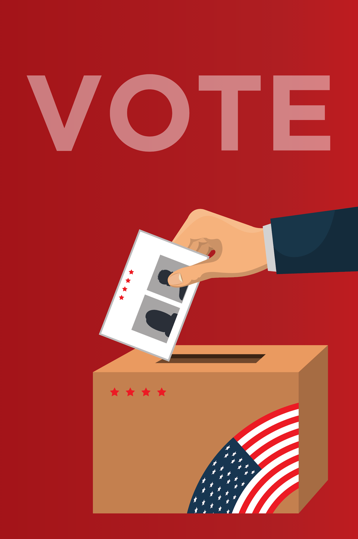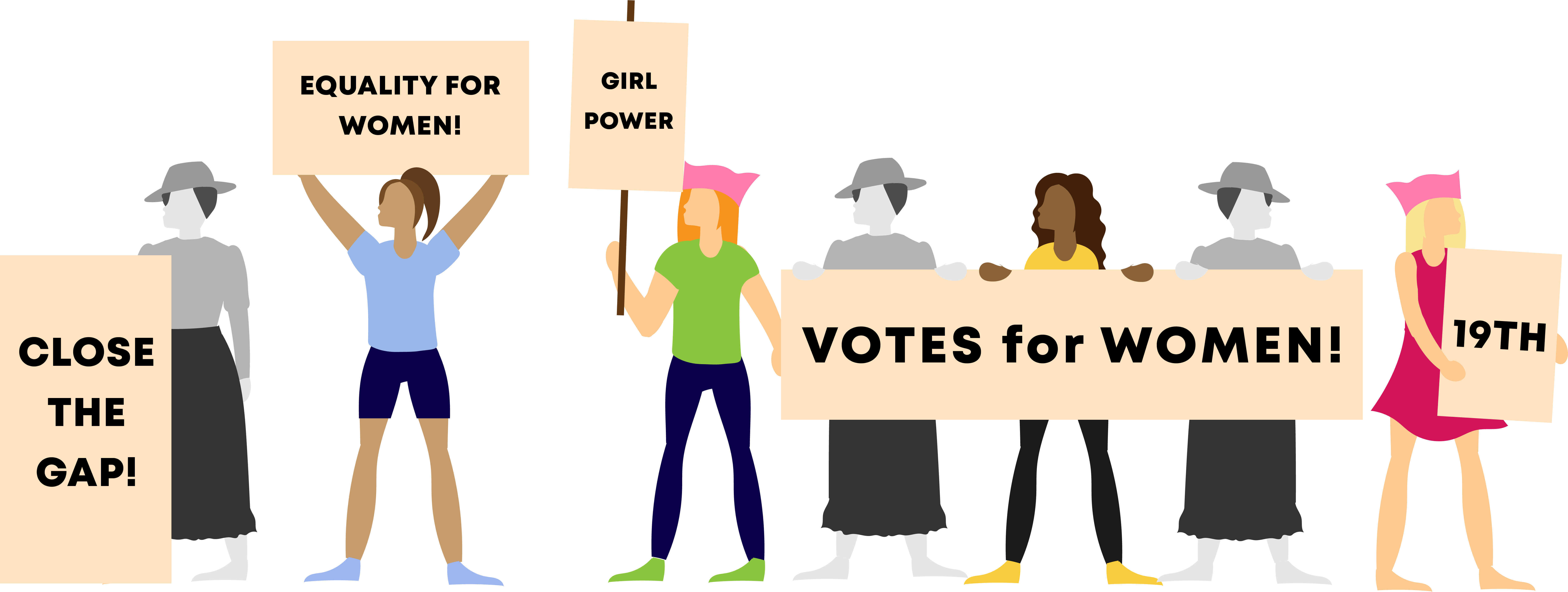
~~~~~~~~~~~~~~~~~~~~~~~~~~~~~~~
Many Chapman University students will be voting for the first time in the 2020 presidential election, with it being their first taste of civic life in America.
“I’m voting next year because I want the position of president to be seen as legitimate again. It doesn’t give me much pride as an American to know world leaders are mocking our president,” said junior economics major Walker West, who registered as a Democrat in 2017. West, who is from Hawaii, will be voting via absentee ballot.
Many students like West were unable to vote in the 2016 election due to their age, but now that their time has come, they are finding themselves ready to do their part to change America. However, since the Chapman student body represents 49 states, there are bound to be some students who find themselves a bit far from their local voting booth.
“It wasn’t super hard to sign up to vote, I did at all online, but not many people know how to do that,” said West. West did not say who he would be voting for in the upcoming presidential election, but did say that “it definitely won’t be Biden.”
Each state differs in how to register as an out-of-state voter, but most involve work online and through the mail.
“There were just way too many hoops to jump through,“ said Carolyn Chang, a junior psychology major and Democrat from New York. Chang feels that the process to register as an out-of-state voter is too complicated.
“After I finished the online application I thought I would be done, but then they wanted me to print out another one to fill out and mail in. It’s just too much to deal with, especially knowing that my vote probably wouldn’t really matter anyway,” Chang said.
Voting numbers within the student population have increased from just 14.7% of students voting in the 2014 midterms to 44.2% in the 2018 midterms according to a 2019 Chapman article. This led Chapman to be recognized as being a “Voter-Friendly Campus” by the Campus Vote Project and the National Association of Student Personnel Administrators.
Saman Ghoreyshi, a junior economics major from Calabasas, California, registered to vote as a Democrat earlier this year. Despite the title of “Voter-Friendly Campus”, Ghoreyshi is not voting in this presidential election.
“There’s too much inequality and corporate nonsense involved in the process of voting. I won’t choose to vote until all Americans are given that right,” Ghoreyshi said. Even though he is not voting this year, Ghoreyshi is registered and did so in 2018, as he and his parents wanted him to participate in the midterms that year.
According to the 2018 National Study of Learning, Voting, and Engagement, 99% of college campuses recorded that students were more likely to vote in the 2018 midterms than the 2014 presidential election. It was also reported that 7.5 million college students voted in the 2018 midterms.
“First-time voter numbers, especially in college-age people, has seen a large increase in recent elections,” said Adam Gismondi, the Director of Impact at the Institute for Democracy and Higher Education. “The more that students want to see representation, then the more important it is that they get out and vote.”
Oliver Boyse, a senior and business administraton major from Newport Beach, California, registered as a Republican in 2016 but did not vote, as he was unable to make it to his local polling station that day.
“I was in class all day and had no way of getting there. I finally realized why people think that [Election] Day should be a national holiday,” Boyse said.

Even though Boyse thinks Chapman should market more conservative events, he thinks it is great the school is doing what it can to get students politically active, no matter the side they lean towards.
“I hear a lot of people say their vote doesn’t matter, and I think that’s just them being lazy. Sure, it takes a bit of effort to register, but once that’s over, you feel that you just might be able to make some change in our country,” said Boyse.
Young adults’ excitement to get political is only growing by each election year, and with so much political drama and uncertainty unfolding in the past four years, many are curious as to who will be the next to lead the nation.
“If you’re able to, you should vote. I get that life is busy, but fit it into your schedule. It’s your duty as an American,” said West.
The duty of voting does not only extend to the presidency, though.
“If young Americans want to fight for a diverse House and a diverse Congress, they should be voting every chance they get. Representation starts at the local level and only grows from there,” said Gismondi.
